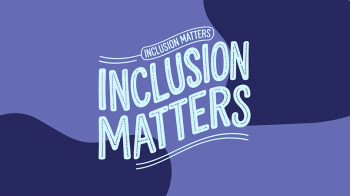Choosing between humanities and technical fields is a decision many face at the threshold of adulthood. Each person is unique, and their inclinations can determine in which area they will be most successful, in demand, and happy. When you ask yourself whether you are a humanities student or a techie, you are essentially exploring your internal preferences, passions, and talents.
There is a common belief that both types of students are two opposing extremes with nothing in common. However, this is not always the case. Many modern professions require a combination of both skills. For example, a successful project manager must effectively communicate with people and understand the technical aspects of the project. Thus, choosing a direction does not necessarily mean a strict division but rather finding a balance between these two worlds. Techies and humanities students can complement each other well in a team, creating synergy that leads to innovation and success. Do not be afraid to experiment and try yourself in different areas.
Why Understanding the Differences Between Humanities and Technical Fields is Important
Understanding the differences between such fields is crucial for effective education and professional activity. They influence learning methods: humanities students often work with texts and discussions, while techies deal with models and experiments. Comprehending these aspects aids in choosing the appropriate educational and career path.
What to consider when learning about fields:
- Education choice – the right educational path significantly increases the chances of successful learning and acquiring quality knowledge.
- Career development – figuring out your dispositions and interests plays a role in choosing a suitable profession.
- Personal development – awareness of strengths and weaknesses supports growth and self-improvement.
- Complex thinking – catching differences develops complex thinking.
- Social adaptation – assorted approaches to learning and problem-solving help better understand and interact with people of different mindsets.
Humanities against techies is an eternal dilemma, discussed by students, teachers, and employers alike. It is not just about different categories of people but also different approaches to learning. For example, humanities students pay much attention to reading, text analysis, and written work. They often develop analytical guts, critical thinking, and creative abilities.

Techies, on the other hand, are focused on exact sciences, logic, and solving specific problems. Such experts are in demand in engineering, information technology, and science fields. If you need advice in choosing the right direction or want to improve your knowledge in a particular area, the tutor search platform TeMa is ready to assist you.
How These Differences Affect Education and Career Alternatives
Who is humanities, and what do they do? For those who love literature, history, and languages, the appropriate avocation can become a true calling. They can find themselves in professions such as journalist, philologist, historian, translator, and sociologist. If you are interested in exploring culture, writing articles, or working with foreign languages and enjoyed such subjects in school, this direction could be the perfect choice.
However, if you are passionate about mathematics, physics, and technology, technical sciences can offer many exciting opportunities. Techies usually have logical thinking, analytical abilities, and the skill to work with exact sciences. Careers for techies include engineers, programmers, physicists, chemists, or architects. Education in this department involves polytechnic institutes and faculties of computer science, physics, chemistry, and other technical disciplines.
Unsure about your choice? Turn to our TeMa tutor search services! We will help you find the right professionals who can assist you in choosing your direction and preparing for admission.
Humanities and Technical Skills: What Distinguishes Each Direction
Humanities and technical mysteries represent two different ranges, each requiring a unique set of competencies and approaches.
Humanities talents focus on perceiving human nature and society. They include analytical writing, communication skills, and empathy. Technical skills, on the other hand, focus on the practical application of scientific and mathematical knowledge. Professionals with technical ones can develop innovative solutions, optimize processes, and work with high-tech tools and systems. Following your direction can be aided by a humanities or techie test.
Key Skills and Competencies of Humanities Students
The humanities play a crucial role in the development of society, providing us with tools to understand human experience and culture. A humanities specialist possesses a range of unique skills that make them an integral part of any professional environment.
Excellent communication skills, both oral and written, are a vital aspect of their skill set. The ability to clearly and convincingly express their thoughts helps them interact effectively with various audiences. Good communication knowledge enable specialists to conduct successful negotiations, write informative reports, and deliver public presentations.
Critical reasoning is another essential professional competency. Humanities experts know how to ask the right questions, analyze arguments, and find logical connections, which make informed decisions and solve complex problems.
When reflecting about what it means to be a humanities authority, creativity and innovative thinking immediately come to mind. This allows them to find unconventional solutions and create innovative projects. Sensitivity to cultural and social aspects makes masters understand and respect the diversity of opinions and traditions. This quality contributes to creating an inclusive and harmonious social environment where everyone feels valued and respected.
In conclusion, let's list the main skills of humanities specialists in a brief summary:
- analysis and interpretation of texts.
- oral and written communication mysteries.
- critical thinking and reasoning.
- creative and innovative prospect.
- sensitivity to cultural aspects.
- understanding and respect for diversity.
The humanities play an important role in shaping the intellectual and cultural foundation of society. The goods of these specialists enrich our interactions and contribute to sustainable development. Their contribution makes the world more meaningful and inclusive.
Technical Skills Defining Techies' Professional Development
A tech specialist is a person whose strengths lie in logical and analytical thinking, the competence to solve complex tasks and problems, and excellent mathematical and scientific knowledge. These experts must be able to work with technical documentation and drawings, as well as have programming skills and proficiency in working with computer technologies.
Logical and analytical thinking enables tech professionals to effectively analyze problems and find optimal solutions. Mathematical and scientific knowledge forms the basis for understanding and applying complex theories and models necessary for professional duties.
Working with technical documentation and drawings requires attention to detail and the intelligence to interpret information presented in various forms. Programming skills and proficiency in working with computer technologies are becoming increasingly important as automation and digitalization encompass virtually all industries. If you want to enhance your technical abilities and become a sought-after specialist, contact TeMa – a tutor search service that will help you achieve your goals.
Tech specialists and humanities scholars: Common Traits
Despite the differences in approaches and methodologies, tech specialists and humanities scholars share many common traits that help them achieve success in their professional and personal endeavors. One of these traits is the drive for self-improvement and learning. Whether a person is engaged in programming or studying literature, continuous learning and the pursuit of new knowledge are key factors in achieving mastery in any field.
.webp)
The ability to work in a team also unites these two kinds of scholars. Another important trait is the ability to adapt to changes. As technologies and social trends evolve rapidly, successful professionals must be ready to quickly respond to these changes. A creative approach to problem-solving is also a common trait of both tech specialists and humanities scholars. Regardless of their field, creative thinking helps find unconventional solutions and overcome challenges.
How to Determine Your Calling: Tips for Choosing Between Humanities and Technical Fields
Ascertaining your calling is an important and often challenging step in every person's life. Taking a humanities or tech aptitude test is one technique to quickly understand your talents and qualifications. Here are a few tips in this process.
First, start with self-analysis. Ask yourself questions: What do you truly enjoy doing? In which areas do you feel confident and competent? Second, focus on your strengths. Take job orientation queries that can classify your natural talents and inclinations. Schools and universities often offer tests like the “tech or humanities” test, which are also available online. The results can provide valuable insights into which fields might suit you best.
Third, try out different areas. Attend open lectures, participate in workshops and internships. Finally, do not forget about your long-term goals. Think about what you envision for your future. What professions interest you? What working conditions and salary levels do you expect? The answers to these questions will help you determine whether any direction better aligns with your life goals.
Tests and Methods for Identifying Inclinations and Preferences
Understanding one's own inclinations and preferences can significantly simplify the choice of the right direction in life and career. There are numerous tests and methodologies that assist in this process.
For instance, the Holland Code test, also known as RIA SEC, categorizes professions into six divisions: Realistic, Investigative, Artistic, Social, Enterprising, and Conventional. The so-called humanities or tech propensity test helps understand which types of activities might be most suitable for a person based on their interests and preferences.
Psychological tests, such as the MBTI, assess personality characters and their alignment with specific professions. MBTI categorizes people into 16 personality types rooted on characteristics like Introversion/Extraversion, Sensing/Intuition, and others. For instance, individuals with the INFJ personality type often find themselves in professions related to counseling and psychotherapy due to their inclination towards empathy and deep understanding of others.
An interesting fact: research shows that people working in professions aligned with their personality type often experience job satisfaction and higher productivity. It is important to note that none of these tests provide an absolute answer to who you should become, but they offer valuable insights and directions for contemplation. Nevertheless, many enjoy taking humanities or tech aptitude tests and discover new aspects about themselves.
How a TeMa Tutor Can Influence Your Choice
Choosing between a humanities and technical direction is an important and responsible step that determines your future career and personal development. To make an informed choice, it's crucial to understand your inclinations and interests.
The educational platform for finding tutors, TeMa, can provide significant support in making this decision. An individualized approach allows adapting the learning program to your abilities and interests. Support and motivation help overcome difficulties and strengthen confidence in your strengths. The practical experience of the tutor provides a realistic understanding of the chosen profession, which facilitates informed decision-making.


-preview.png)